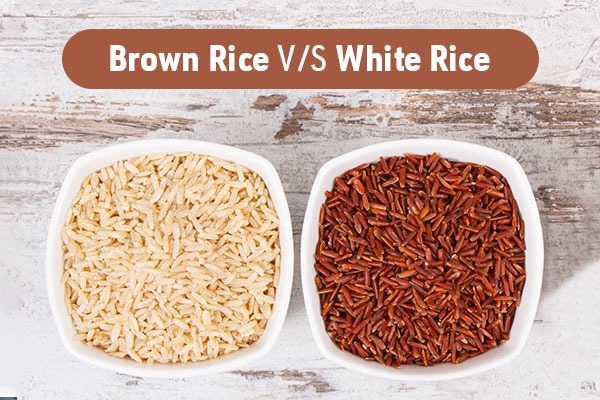Rice is a staple across continents, from Indian thalis to Japanese sushi. But when it comes to choosing between white rice and brown rice, the debate goes beyond taste and texture—it’s about nutrition, digestion, and long-term health. A recent deep dive into their differences has reignited the conversation on which grain deserves a more prominent place on your plate.
What Sets Them Apart
- Brown rice is a whole grain that retains the bran and germ, making it richer in fibre, vitamins, and minerals
- White rice is milled and polished, removing the bran and germ and leaving behind mostly the starchy endosperm
- This processing gives white rice a softer texture and quicker cooking time, while brown rice has a nuttier flavour and chewier bite
Nutritional Face-Off
- One cup of cooked brown rice provides approximately 3.5 grams of fibre, compared to just 0.6 grams in white rice
- Brown rice contains more B vitamins (like B1 and B3), magnesium, and iron
- White rice is often enriched with some nutrients post-processing, but still lacks the fibre and antioxidant content of brown rice
- Calorically, both are similar: a cup of cooked brown rice has around 218 calories, while white rice clocks in at about 242
Impact on Blood Sugar and Digestion
- Brown rice has a lower glycaemic index (GI of ~65), meaning it raises blood sugar more slowly than white rice (GI of ~73)
- This makes brown rice a better option for people managing diabetes or aiming for stable energy levels
- White rice, being easier to digest, is often preferred for children, older adults, or those with digestive sensitivities
- For those new to brown rice, mixing it with white rice can help ease the transition in taste and texture
Which One Is Healthier?
- Brown rice generally wins for its higher fibre, better blood sugar control, and more complete nutrient profile
- However, white rice can still be part of a balanced diet when consumed in moderation and paired with vegetables and proteins
- The healthiest choice depends on individual needs—those with digestive issues may benefit from white rice, while others may thrive on the whole-grain benefits of brown
Final Takeaway
Both white and brown rice have their place in a healthy diet. Brown rice offers more nutritional value and is better for long-term metabolic health, while white rice provides ease of digestion and culinary versatility. The key lies in portion control, preparation, and dietary balance.
Sources: India Today, Healthline, Harvard Health, MSN India, OnlyMyHealth
